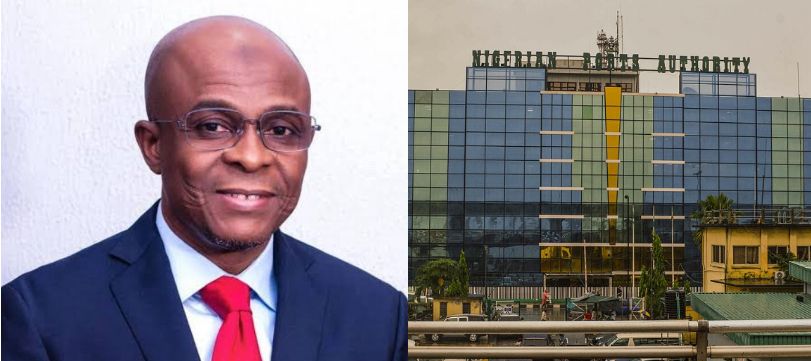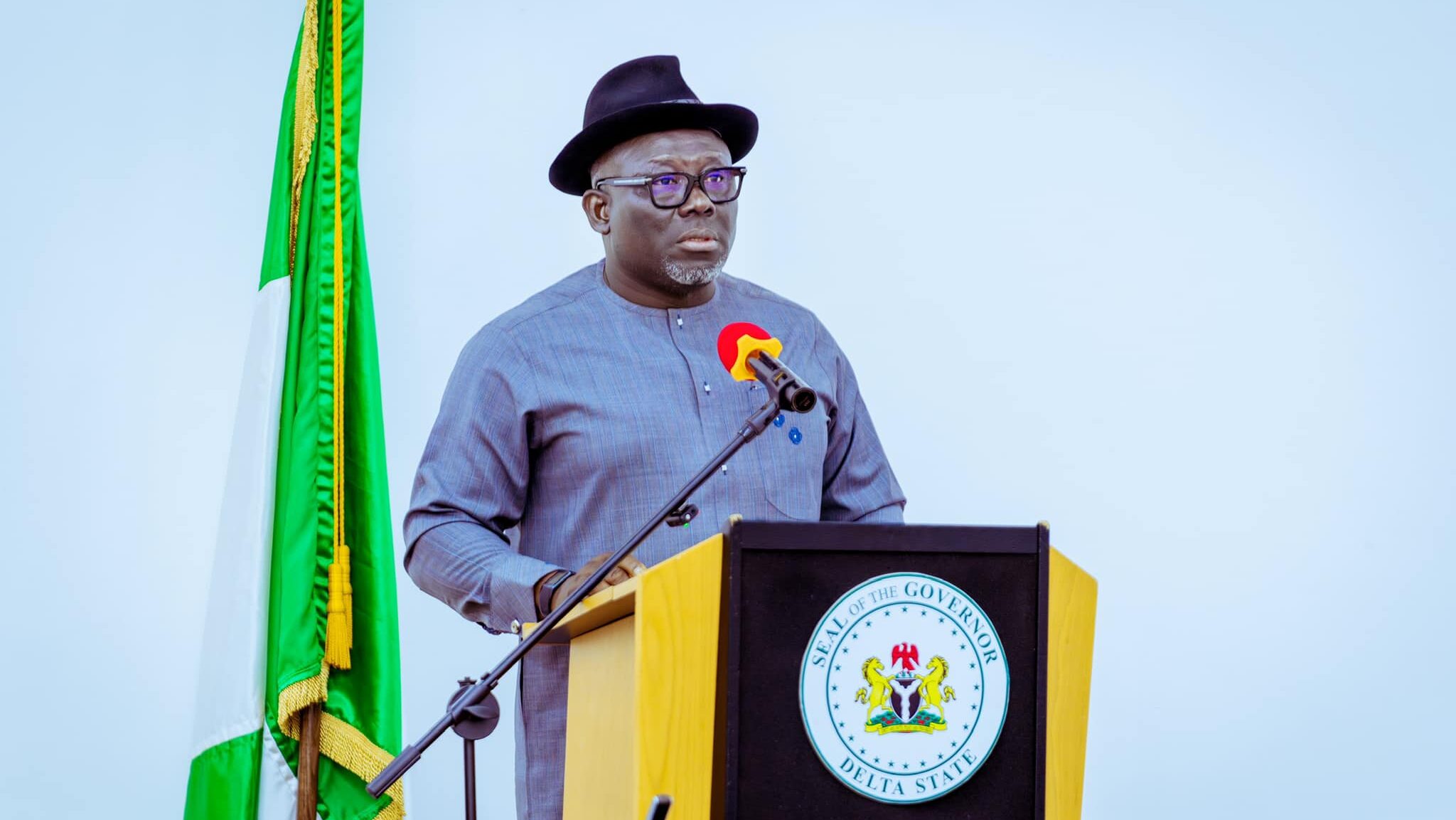The Director General of Nigeria Employers’ Consultative Association, Mr. Adewale-Smatt Oyerinde, in this interview speaks on Nigeria’s business environment and its impact on the economy. Dike Onwuamaeze presents the excerpts:
Three years have come and gone since you were appointed the director general of NECA. So far, what has your experience been like?
I must say that it has been very challenging considering the kind of business that we do, which is advocating for enterprise sustainability in an environment with multi-dimensional challenges. It has been challenging in the context of the challenges orginised businesses are facing, which include seeing businesses closed down. It has been challenging advocating to those that have decided that they are not going to understand. It has been challenging trying to explain the nexus between sustainable enterprises and national growth to those that ordinarily should understand. It has been challenging but also rewarding in the context of the relationships we have built; the outcomes our team has been able to achieve for the organised private sector and also the leverage and impact we have made at the international level. So, it has been a mixed bag of positives and not so much of negatives.
What do you consider to be your most challenging exercise in these three years?
One of the most difficult ones was the negotiation of the national minimum national wage in 2023. The negotiation started at a time the economy was not in a very good state following the removal of petrol subsidy. In addition, workers’ disposable income has experienced a big dip while organised businesses were facing multi-dimensional challenges following the escalation in energy prices and other inputs. Well it was a difficult conversation but eventually we were able to come out with the new national minimum wage.
What is your view about the recently rebased economy by the National Bureau of Statistics (NBS), which reported 18.3% GDP growth?
There will always be two contexts to statistics. The first context is what the real figures are saying, which to a large extent you cannot really contest. You will remember when the statistical model for calculating the unemployment rate was changed, there was an outcry but the reality is that the world has moved to that model of calculation. Has the NBS done its own work? Yes, it has done its work based on the parameters it used to do the calculations. The reality for many households may be a different thing but the NBS is justified within the context of the parameters it needed to its own calculations. The average Nigerian and businessman are also justified to react within the context of their own realities. But the rebasing has helped us to put the economy in its proper perspective. From the rebasing we have come to realise that the service and retail sectors are actually playing very critical roles and that it is not all about oil and gas anymore. The statistics also showed that the manufacturing sector has continued to shrink, which gives government the information it needs to know the sector to give more attention to. It gave us the opportunity to reassess the contributing capacity and potentials of various sectors of the economy to the GDP.
President Bola Ahmed Tinubu’s administration started with the mantra that “subsidy is gone” and unification of foreign exchange. With benefit of hindsight what is your view about these decisions?
The first question is whether it was necessary for us to remove fuel subsidy? My answer is yes. Someone has to take the difficult decision. So, President Tinubu’s administration did what a rational government should have done. We have printed money to defend the Naira but Tinubu said let the Naira finds its value. We were not producing anything. Manufacturing was almost in comatose. We are importing even the most ridiculous of things. So, it is not possible for the Naira to be N450/$. It was a false impression because we were not exporting. And we had the evil merchants that were round tripping the dollar. They will get the dollar at N450 from the central bank and cross the street to sell it at N700 to the BDCs. For now, we are allowing the Naira to find its true value and since April the Naira has been hovering around N1,500 to the dollar. It means that the Naira is finding its balance in the market. So, was it necessary to remove fuel subsidy at that point in time? Yes, it was absolutely necessary. Was it necessary to libralise the foreign exchange market so that market forces will determine the value of the Naira? Again, I think that it was necessary.
What is your view about the recently concluded tax reform exercise that led to the enactment of new tax laws?
The organised private sector (OPS)is still a member of the presidential committee on fiscal reform. And from our experience and cries over many years over multiplicity of taxes, we know that there are lots of positives from the exercise. The tax laws have been passed into law and the next thing is to step up awareness about these laws. The OPS is open to that engagement and will help to drive the awareness across to the SMEs, organised businesses and workers to ensure that everyone is aligned with the scope of these laws so that when the implementation starts in January the teething problems will be less. We are open to engage with the Federal Inland Revenue Service (FIRS) so that the maximum benefits of these laws can be felt by the organised businesses and Nigerians as well.
There are claims that the tax laws did not grant exemptions to minimum wage earners. What is your view on this?
I think that it is not true. We must say that we have seen a lot of mischievous information regarding the tax reform laws. Before now there were pre-consultation copies of these laws. But between then and the time the laws were eventually enacted, a lot of concessions were given to an average worker, SMEs and businesses. Everyone should take time to go through the gazette copies of these laws before commenting on them. You can hardly find a perfect law, which is why we have provisions for amendments. We will take a second look and make recommendations if there are needs to amend any part of the laws. But is it a good start? Yes, it is.
Anyone that is earning N840,000 per annum is already in the negative financially and coming to take income tax will be an overkill?
We should know that the minimum wage is the lowest wage below which no one should earn. The idea is to exempt everyone earning minimum wage and until we have a good grasp of the content of the tax laws, our comments can be mere conjectures. But we know definitely that there are a lot of relieves for low income earners and to a certain level even for high income earners. So it is not as bad as it used to be.
How are the members of the organised businesses coping with the high cost of electricity?
The electricity sector has been a challenge for us. And rather than the matter being resolved quickly and amicably, a lot of complexities still persist. The recent liberlisation of the electricity sector that gave the state governments power to also have a level of control on the power sector has also created some dynamics. We saw a case where the Enugu State Government’s electricity commission reduced electricity tariffs in a manner that is not cost reflective. We are also reading that the federal government has plans to resell the DISCOs to new investors. But the reality of it is that without power Nigeria can hardly industrialise. For us to Industrialise, we need to create a system in the power sector that gives priority to the productive sector. We cannot run the power sector with controversies about what cost reflective tariff is and the government claiming that it is still subsidising power. We think that there is need for transparency in that sector for Nigerians to maximise the benefit of regular electricity. Power has been and still remains a challenge.
Is the Dangote Refineries living up to the hopes and expectations of Nigerians?
I think that we need to commend the resilience, doggedness and the uncommon mindset of the promoters of the Dangote Refineries, which is led by Alhaji Aliko Dangote. It takes an uncommon zeal to do such an investment. The refinery is stabilising with plans to expand its capacity to supply to the international markets. The Dangote Refineries has done well in terms of job creations and reducing pressure on the foreign exchange market otherwise we will still be diverting foreign xchange from the productive sector to import petrol. Kudos should be given to the Dangote Refineries.
NECA called on the Central Bank of Nigeria (CBN) to sustain its tight monetary policy when other members of the OPS are clamouring for lower MPR. Why?
It depends on the economic objective that should influence CBN’s policy directions. Is it to control inflation or increase access to fund? For any policy choice there is going to be those that will benefit and those that will not. With the CBN’s tightened monetary policy in the last one year we have seen some level of stability in the macroeconomic level. The volatility that we saw in the second half of 2023 has to a large extent been contained. If I am in the CBN I will look for what that has helped it to achieve some semblance of stability. If maintaining the tightening is what that has helped to maintain the prevailing level of stability, then I will choose the option of tightening the monetary policy. Monetary policy decisions should be based on what the regulator desires to achieve in the long run. I think that in the interim the CBN should continue on the path of tightened monetary policy so that the stability we have begun to see will be sustained.
What is your view on the dominant contribution of the service sector to the country’s GDP?
We have always said that job creation is not a rocket science. The two parameters to job creation are creating and deepening the enabling environment for businesses to stablise and expand. The more they expand the more job opportunities they create. That is one. Second, create an environment that does not allow existing businesses to shrink and not where the regulatory environment is creating situations where businesses are shrinking and closing shops. You cannot create jobs in that situation. It is as simple as that. There are regulators that we have labeled undertakers of organised businesses. While we commend the work the Presidential Enabling Business Environment Council (PEBEC) is doing, we still have a couple of regulators still doing there beats. So, create the enabling environment and address the regulatory issues that are stifling businesses. This will position current investors to be expanding and attracting FDIs.
How do you assess Nigeria’s regulatory environment?
First, we will commend the role of PEBEC and its director general for the work they are doing. Yet, the regulatory environment is still not friendly. As we speak we still continue to engage regulators. What the government can do for us is to create a framework where a regulator’s impact will be gauged by the number of businesses its activities have facilitated and not how many businesses it has sanctioned or closed up. The regulators should rethink their activities and align them with the overall economic objectives of the country.
Many manufacturing companies are declaring huge revenues in their 2025 half year financial reports. What is behind this turnaround in their fortunes?
Adversity is the mother of invention. I think that a lot of businesses have found a way of operating in this environment. Many organisations went into backward integration when foreign exchange became a challenge. Many also opened recycling plants where they recycle waste and export the byproducts. Some of these businesses have actually reinvented themselves. Innovations and investments in technology are some of the reasons these companies are posting good results.
The post Oyerinde: FG Should Create a System in Power Sector that Prioritise Industrial, Productive Sectors appeared first on THISDAYLIVE.




